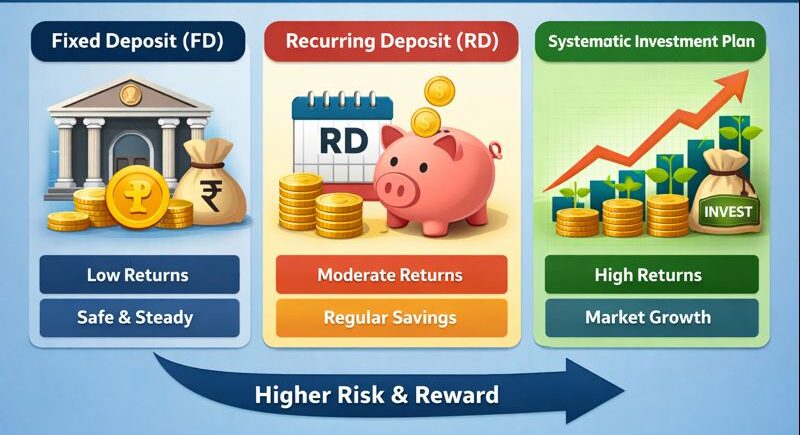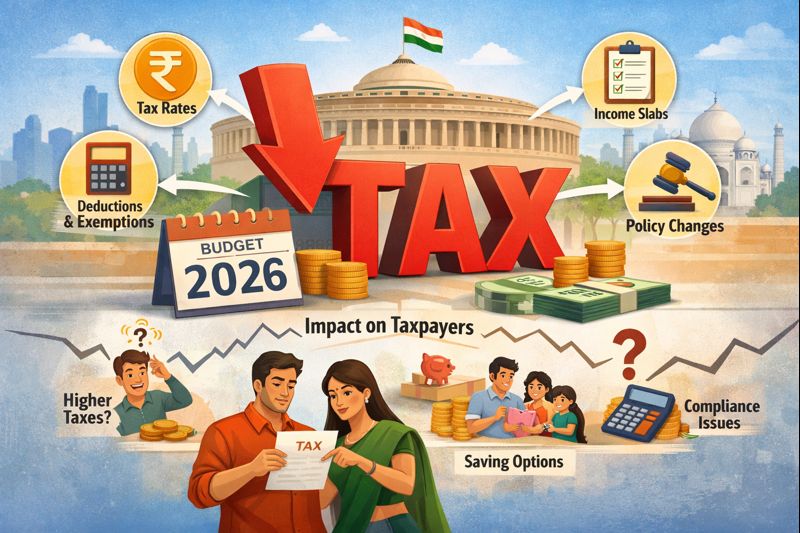Nowadays, short-duration mutual funds are in great demand because they are favored by investors who are seeking lower risk and stable returns within a short time period. Short-duration mutual funds invest in assets like Treasury bills (T–bills), Commercial papers, Certificates of Deposit, Corporate bonds, and Government Securities (G-Secs) to ensure they have enough liquidity.
Security Exchange Board of India (SEBI) guidelines allow these funds to invest in debt instruments with maturities between one and three years, making them suitable for short-term investments up to three years or slightly longer. In terms of interest rate risk, they fall in the middle range—riskier than liquid, ultra-short-term, and low-duration funds but safer than medium- and long-term funds.
What are Treasury Bills (T-Bills)?
Treasury Bills or T-Bills in India are short-term debt instruments issued by the Reserve Bank of India (RBI) to address the government’s temporary funding requirements. They come with three standard maturities—91 days, 182 days, and 364 days—and are considered very safe as they are government-backed. T-bills are sold at a discount, meaning investors buy them for less than their face value and earn the difference as profit upon redemption. They do not pay any interest; instead, the return is the gap between the discounted purchase price and the face value at maturity. Due to their security and high liquidity, T-Bills are favored by banks, financial institutions, and individual investors looking for a low-risk, short-term investment.
What are Commercial Papers?
Commercial Papers (CPs) are unsecured, short-term debt instruments that companies, financial institutions, and large corporations issue to meet immediate funding needs like inventory and working capital. These instruments are issued at a discount and redeemed at face value upon maturity, with the difference serving as the investor’s return. In India, CPs generally have maturities ranging from 7 days to up to 1 year. As they are not backed by collateral, CPs carry higher risk compared to government securities, which is why they offer higher interest rates to attract investors. Only companies with strong credit ratings can issue CPs, and the interest rates depend on the issuing company’s credit strength and market conditions.
What are Certificates of Deposit?
Certificates of Deposit (CDs) are fixed-income financial instruments issued by banks and financial institutions for short- to medium-term periods to raise funds. They provide a guaranteed interest rate over a set timeframe, making them a low-risk investment choice for those seeking stable returns. In India, Certificates of Deposit generally have maturities ranging from a few months to one year for short-term options and can extend up to five years for longer terms. Investors purchase a Certificate of Deposit by investing a fixed principal amount, receiving interest at a predetermined rate, with both the principal and interest returned at maturity. While CDs cannot be cashed out before the maturity date without incurring a penalty, they can sometimes be traded in the secondary market, offering some liquidity.
What are Corporate Bonds?
Corporate bonds are debt securities issued by companies to generate capital for different needs, such as financing new projects, expanding operations, or refinancing current debt. When investors buy corporate bonds, they are effectively lending money to the issuing company in return for regular interest payments, known as coupon payments, and the repayment of the principal amount at maturity. Corporate bonds usually have maturities that range from a few years to several decades and come with different levels of risk and interest rates, which depend on the creditworthiness of the issuing company.
What are Government Securities (G – Secs)?
Government securities (G-secs) are debt instruments issued by the government to raise funds from the public and financial institutions for various activities and to manage public debt. These securities are regarded as some of the safest investment options since they are backed by the government, which can levy taxes and print currency. Treasury Bills (T-Bills) are short-term instruments with maturities of 91 days, 182 days, or 364 days, while government bonds usually have longer maturities that range from 5 to 40 years.
Top Short Duration Mutual funds to consider for investment in October 2024
1. HDFC Short-Term Debt Fund
Investment Strategy: This fund invests in debt instruments characterized by low to moderate risk, with a duration of 1 to 3 years.
Key Features:
- Maturity: It targets instruments that mature within a 1 to 3-year timeframe.
- Risk Profile: The fund aims to provide regular income while maintaining moderate risk.
- Returns: Since its launch, it has shown strong performance, with a 1-year return of about 8.55% as of September 30, 2024.
2. ICICI Prudential Short-Term Fund
Investment Strategy: This fund focuses on investing in debt securities with moderate risk and a duration of 1 to 3 years.
Key Features:
- Maturity: It specifically targets instruments maturing within 1 to 3 years.
- Risk Profile: The fund seeks to offer regular income with a moderate level of risk.
- Returns: It has recorded a 1-year return of around 8.71% as of October 28, 2024.
3. Axis Short-Term Fund
Investment Strategy: This fund invests in debt instruments with low to moderate risk and a duration of 1 to 3 years.
Key Features:
- Maturity: It focuses on instruments that mature within a 1 to 3-year period.
- Risk Profile: The fund aims to deliver reasonable returns with lower risk.
- Returns: It has maintained consistent performance, achieving a 1-year return of approximately 8.02% as of September 30, 2024.
These funds are ideal for investors looking for short-term investment options that offer moderate risk and stable returns.
Why invest in Short Duration Mutual Funds?
1. Less Volatile – These funds exhibit reduced sensitivity to interest rate changes due to their shorter maturity periods, which helps maintain stability in the portfolio.
2. Consistent Returns – They provide a consistent income stream, making them suitable for investors seeking periodic returns with lower risk compared to equity funds.
3. Tax Efficient – If held for more than three years, these funds qualify for long-term capital gains tax, along with indexation benefits that can enhance post-tax returns.
4. Liquidity: Short-duration funds typically provide superior liquidity compared to long-term investments, enabling investors to access their money more easily when necessary.
5. Diversification: By allocating investments across various debt instruments, these funds help diversify an investor’s portfolio, thereby minimizing overall risk.
6. Risk Management: They are a great choice for conservative investors looking to steer clear of the higher risks associated with equities while still achieving better returns than conventional savings accounts.
7. Suitable for Financial Goals: Short-duration funds are well-suited for addressing short- to medium-term financial objectives, such as saving for a down payment or financing a vacation, where preserving capital is essential.
Final Thoughts
Short-duration mutual funds are a great choice for conservative investors seeking stable returns with reduced risk. Although they are safer than longer-duration debt funds or equities, it’s important to keep in mind that they still carry interest rates and credit risks. By thoughtfully choosing funds that align with your financial objectives and current market conditions, you can maximize the benefits of short-duration mutual funds this year.
Sources: msn.com







